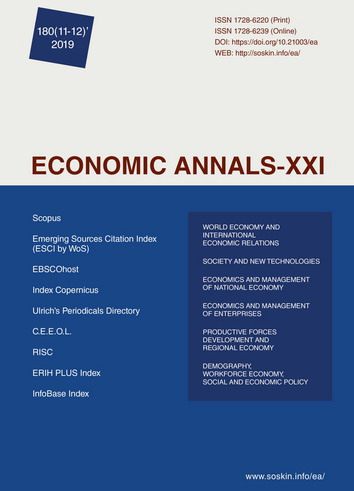State monopolies in China: history and modern experience
State monopolies in China: history and modern experience
Author(s): Olga LarinaSubject(s): National Economy, Political economy, Economic development, Socio-Economic Research
Published by: Institute of Society Transformation
Keywords: Monopoly; China; Monopoly on Rare Earth Metals; REM; Panda Diplomacy; Salt Monopoly; Mining of Oil And Gas; Digital Monopoly; Antitrust Policy;
Summary/Abstract: The aim of the research is to identify the patterns and role of state monopoly policies in the development of Chinese state and society. It provides a comparative analysis of the Chinese government’s policy in the field of monopolies in history and at the present stage. State monopolies have played an important role and have had significant political and economic influence throughout history in China. One of the China’s monopolies which has a great influence on the high-tech production market is the monopoly on rare earth metals (REM). Control over this market increases the dependence of other countries on China and allows the use of this dependence in foreign policy processes. The second monopoly, Panda monopoly, is also used as an instrument of foreign policy to express friendly intentions and willingness to cooperate. Along with this, a number of monopolies are undergoing transformational processes in China. For example, one of the oldest monopolies in the world - the monopoly of China on salt - was dismantled in 2017, the Chinese government is preparing to abolish the state monopoly on oil and gas mining and production in 2020. The Internet market trends discussed in the article indicate the presence of monopolies in the Internet space and the need to build new antitrust policy in the digital sphere.
Journal: Економічний часопис - ХХІ
- Issue Year: 180/2019
- Issue No: 11-12
- Page Range: 4-11
- Page Count: 8
- Language: English

